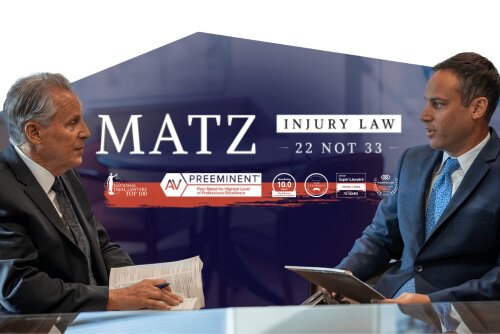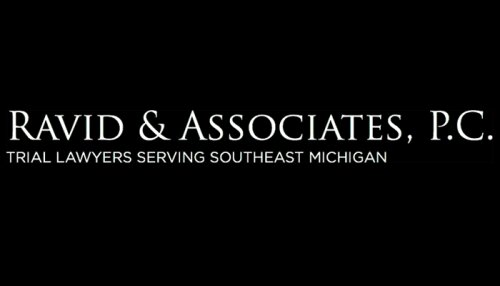Best Dangerous Product Lawyers in Southfield
Share your needs with us, get contacted by law firms.
Free. Takes 2 min.
List of the best lawyers in Southfield, United States
About Dangerous Product Law in Southfield, United States
Dangerous product law in Southfield, United States, refers to the legal standards and regulations governing the responsibility of manufacturers, distributors, suppliers, and retailers for injuries or damages caused by products they put in the marketplace. This area of law aims to protect consumers from defective or harmful products by ensuring accountability and safety. In Southfield, as in much of the United States, these laws are enforced through both federal and state regulations designed to uphold consumer rights and promote public safety.
Why You May Need a Lawyer
There are several scenarios where one might require legal assistance in matters related to dangerous products:
- If you've been injured or suffered damages due to a defective or hazardous product, a lawyer can help you navigate the complex process of seeking compensation.
- Those experiencing wrongful death of a loved one due to a dangerous product can seek justice and reparations through legal action.
- When a product has been recalled or warned against, but you have been adversely affected before the recall, a lawyer can assist in filing a claim.
- In cases where multiple individuals are harmed by the same product, legal guidance might be necessary in pursuing a class action lawsuit.
Local Laws Overview
In Southfield, dangerous product cases are primarily governed by the Michigan Product Liability Act, which defines the legal parameters for claims on defective or unsafe products. Key aspects include:
- Strict Liability: Manufacturers can be held liable for injuries caused by their products, regardless of fault, if the product was sold in a defective condition that was unreasonably dangerous.
- Types of Product Defects: Claims can be based on design defects, manufacturing defects, or failure to provide adequate warnings or instructions.
- Statute of Limitations: Victims must file a lawsuit within a defined time period after suffering an injury, typically three years from the date of injury in Michigan.
- Comparative Fault: If the injured party is found to be partially at fault for the incident, it may reduce the compensation they are eligible to receive.
Frequently Asked Questions
What constitutes a "dangerous product" in legal terms?
A dangerous product is typically one that is defective in its design, manufacturing, or labeling, and poses undue risk of harm to consumers when used as intended or in a foreseeable manner.
How do I prove a product liability case?
To prove a product liability case, you must show that the product was defective, the defect existed when it left the manufacturer, and the defect directly caused your injury or damage.
What should I do if I suspect a product is dangerous?
If you suspect a product is dangerous, stop using it immediately, document your experience, keep the product and any related evidence, and seek legal advice to understand your rights and potential next steps.
Are second-hand products covered under liability laws?
Yes, product liability laws can extend to used products if they are sold by a business, as long as the defect existed when the product was originally manufactured.
Can I file a claim if I didn't purchase the product myself?
Yes, you can file a product liability claim as a third-party user if you were injured by the product, even if you weren't the original purchaser.
What happens if I was partially at fault for my injuries?
In Michigan, the law of comparative fault may apply, which could reduce the compensation you receive by the percentage of fault attributed to you.
What kind of compensation might I receive from a successful claim?
Compensation can include medical expenses, lost wages, pain and suffering, and sometimes punitive damages if egregious negligence was involved.
Do all product liability claims go to court?
No, many product liability claims are settled out of court through negotiations between the affected parties and the defendant's insurance company or legal team.
How long does it take to resolve a product liability case?
The duration of a product liability case can vary widely depending on the complexity of the case, the willingness of parties to settle, and court schedules. It can take anywhere from months to several years.
Is there a government agency that handles dangerous product reports?
Yes, the U.S. Consumer Product Safety Commission (CPSC) handles reports of dangerous products and can issue recalls to protect public safety.
Additional Resources
For more information or assistance regarding dangerous products, the following resources may be helpful:
- United States Consumer Product Safety Commission (CPSC): Provides updates on product recalls and safety alerts.
- Michigan Attorney General's Office: Offers consumer protection tools and guidance for product-related concerns.
- Local Legal Aid Societies: These organizations can offer free or low-cost legal advice and services to those in need.
- Southfield Bar Association: Can help connect you with experienced local attorneys specializing in product liability cases.
Next Steps
If you need legal assistance regarding a dangerous product in Southfield, the following steps can help you begin the process:
- Document all details of the incident, including injuries, medical treatments, and communications with manufacturers or retailers.
- Preserve the product, its packaging, and any instruction manuals or sale receipts.
- Contact a local attorney specializing in product liability to discuss the specifics of your case and explore your legal options.
- Consider reaching out to a consumer protection agency if you suspect broader public risk associated with the product.
- Follow legal advice and gather any additional evidence or documentation as recommended by your counsel.
Taking these steps can help ensure your rights are protected and provide a strong foundation for your legal claim.
Lawzana helps you find the best lawyers and law firms in Southfield through a curated and pre-screened list of qualified legal professionals. Our platform offers rankings and detailed profiles of attorneys and law firms, allowing you to compare based on practice areas, including Dangerous Product, experience, and client feedback.
Each profile includes a description of the firm's areas of practice, client reviews, team members and partners, year of establishment, spoken languages, office locations, contact information, social media presence, and any published articles or resources. Most firms on our platform speak English and are experienced in both local and international legal matters.
Get a quote from top-rated law firms in Southfield, United States — quickly, securely, and without unnecessary hassle.
Disclaimer:
The information provided on this page is for general informational purposes only and does not constitute legal advice. While we strive to ensure the accuracy and relevance of the content, legal information may change over time, and interpretations of the law can vary. You should always consult with a qualified legal professional for advice specific to your situation.
We disclaim all liability for actions taken or not taken based on the content of this page. If you believe any information is incorrect or outdated, please contact us, and we will review and update it where appropriate.











